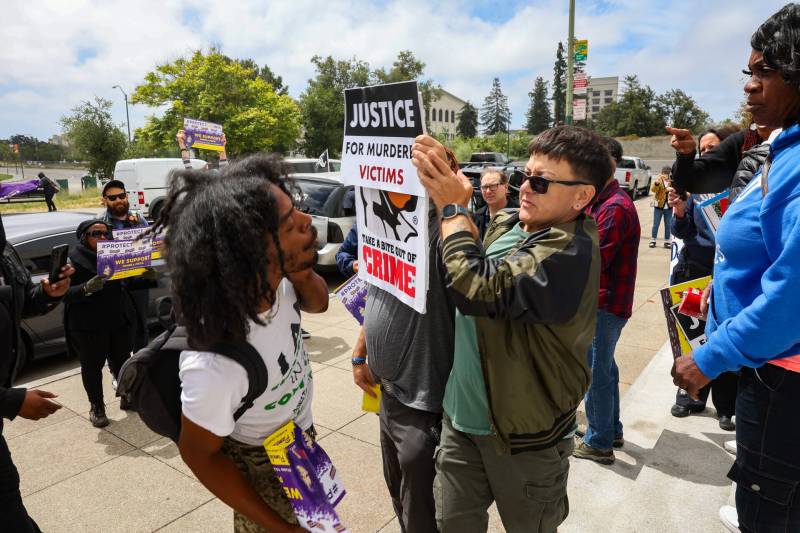Patricia Lee, a former public information officer for Alameda County District Attorney Pamela Price, is suing the county and Price, alleging Price made anti-Asian remarks and fired her in retaliation for speaking up about violations of public transparency laws. The lawsuit was filed Wednesday in Alameda County Superior Court.
The Berkeley Scanner first reported Lee’s allegations in March. The lawsuit builds on previous claims of anti-Asian bias in Price’s administration. Her office denies any anti-Asian bias, but the lawsuit means the narrative likely isn’t going away anytime soon. That’s bad news for Price as she faces a recall election this fall.
The context: Price has been criticized by some for her handling of two homicide cases with Asian victims in November 2021. Kevin Nishita, a security guard for a TV news crew, was killed during a robbery, and toddler Jasper Wu was killed by a stray bullet during an alleged gang-related shootout on Interstate 880 in Oakland. When Price took office in January 2023, her deputies removed special circumstances enhancements from both cases, eliminating the possibility of sentences of death or life without parole. The move was consistent with Price’s campaign stance. To some, the change made it seem like Asian victims were less important.
Claims of bias from within the office have added fuel to these fears. In a May 2023 letter of resignation, former Deputy DA Rebecca Warren claimed Price’s chief assistant made racist statements about Somoans. Warren also characterized an email from Price regarding Wu’s death as condescending to Chinese Americans.
